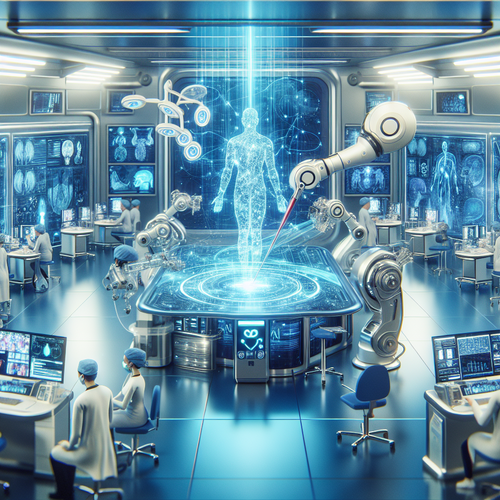
Exploring the Future of AI in Healthcare Technology
Exploring the Future of AI in Healthcare Technology
Artificial intelligence (AI) has emerged as a transformative force in various sectors, and healthcare is no exception. As we look toward the future, AI technologies are set to enhance patient care, streamline operations, and provide innovative solutions to long-standing challenges in healthcare delivery.
The Role of AI in Diagnostics
AI is already making significant strides in improving diagnostic accuracy. Machine learning algorithms can analyze medical images, such as X-rays and MRIs, more quickly and accurately than human radiologists. For example, AI systems can detect anomalies that may go unnoticed, leading to early interventions that can save lives.
Predictive Analytics for Patient Outcomes
- Risk Assessment: AI can analyze vast datasets to identify patients at risk of developing certain conditions, allowing for preventive measures.
- Personalized Treatment: By assessing genetic data, AI can assist doctors in creating personalized treatment plans tailored to individual patient needs.
- Resource Allocation: AI tools can optimize staff and resource allocation in hospitals, ensuring that care is delivered efficiently.
Streamlining Administrative Tasks
AI is not only revolutionizing clinical practices; it is also streamlining administrative functions. The integration of AI chatbots in healthcare can provide patients with immediate assistance, answering common questions and scheduling appointments without the need for human intervention. This decreases wait times and enhances patient satisfaction.
Electronic Health Records (EHR) Management
AI can simplify the management of Electronic Health Records (EHRs) by automating data entry and retrieval processes, thus reducing the burden on healthcare professionals and minimizing errors in patient data. For more insights into AI’s impact on technology, check our previous post Harnessing the Power of AI for Enhanced Data Analytics.
The Ethical Implications of AI in Healthcare
As we embrace AI technologies, ethical considerations must be at the forefront. Questions about data privacy, consent, and algorithm biases are crucial. It is vital for organizations to establish strict ethical guidelines to ensure patient trust and safety.
Future Innovations on the Horizon
Looking ahead, we can expect even more sophisticated AI innovations in the healthcare sector, such as robots that assist in surgeries or AI-driven virtual health consultations. These technologies promise to drive efficiency and improve the quality of care.
Conclusion
The future of AI in healthcare technology holds immense potential. By enhancing diagnostics, personalizing treatments, and streamlining processes, AI can play a critical role in shaping the future of healthcare. Embracing these innovations while prioritizing ethical considerations will be key to ensuring that the benefits of AI are realized across the healthcare spectrum.












